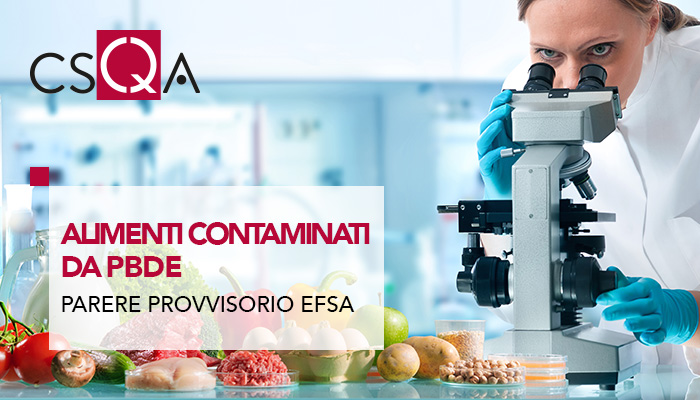
Food contaminated with polybrominated diphenyl ethers poses a health risk to consumers of all age groups.
This is the provisional conclusion of a scientific opinion EFSA subjected to public consultation today.
PBDEs , a class of brominated flame retardants (BFRs), are man-made chemicals used in a wide variety of products such as plastics, textiles, and electrical/electronic equipment to reduce their flammability.
PBDEs can enter air, water, soil, food and feed.
These contaminants are mainly present in foods of animal origin such as fish, meat and milk .
From the results of research on laboratory animals, which were taken into account in the scientific opinion , the experts concluded that PBDEs can have a harmful effect on the reproductive system and nervous system.
The CONTAM Panel recommended continuing to monitor the presence of PBDEs in food.
Specifically, the experts called for more data on the presence of PBDEs in infant formula and how these substances are transferred from mother to child during pregnancy and breastfeeding.
EFSA had already conducted an assessment of PBDEs in 2011 , when it assessed the risk from individual PBDEs and identified health concerns only for young people. Today's draft opinion takes into account scientific evidence that became available after 2011 by assessing the risks associated with joint exposure to some of the most frequently encountered PBDEs.
This is the second scientific opinion in a series of six opinions on the risks posed by BFRs. The first was published in 2021 and contained an updated risk assessment of hexabromocyclododecane (HBCDD) in food .
The EU has taken steps to reduce the risks from the use of BFRs. The use of some BFRs is already prohibited or restricted; however, due to their persistence in the environment, these chemicals continue to raise public health concerns.
ECHA has recently published its Regulatory Strategy for Flame Retardants which highlights how brominated aromatic flame retardants should be restricted at European level in order to minimize human exposure to this class of compounds.
The public consultation will remain open for six weeks. Interested parties are invited to submit their comments by 20 July 2023. (Source: https://www.efsa.europa.eu/ )